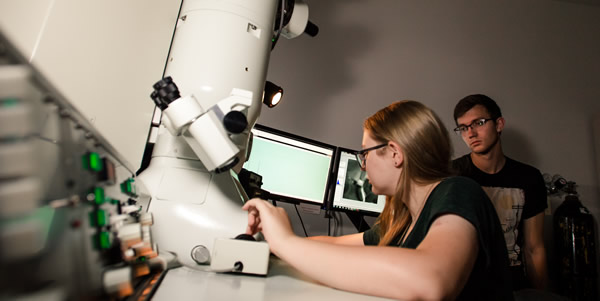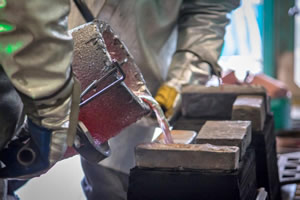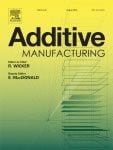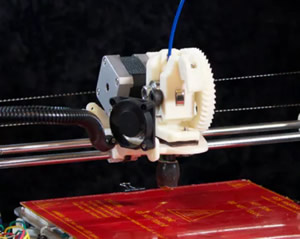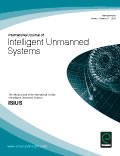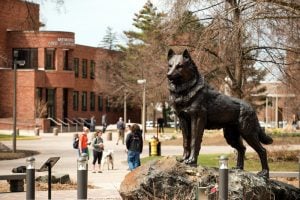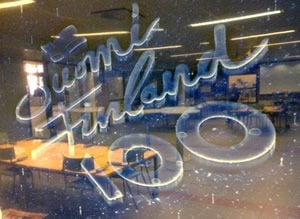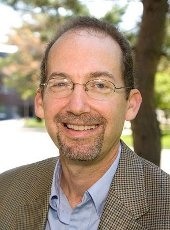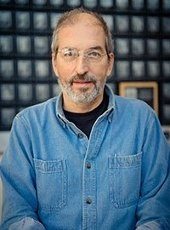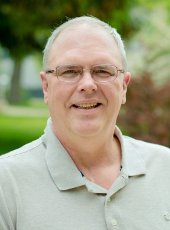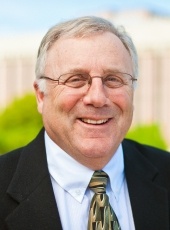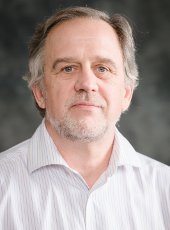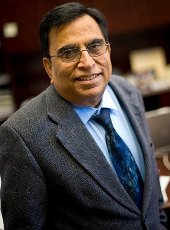“Leadership and Engineering Education—Thursday, Sept. 27. I invite you to join us as we learn from and celebrate the legacy of our two inaugural inductees to the Academy for Engineering Education Leadership. All are welcome.”
All are welcome at the inaugural induction of the Academy for Engineering Education Leadership, hosted by the College of Engineering. The induction and reception will take place today, Thursday, September 27, from 3:30-5:00 p.m. in the East Reading Room of the J. Robert Van Pelt and John and Ruanne Opie Library. Sarah A. Rajala, PhD, and Karl A. Smith, PhD are the new academy’s first distinguished inductees. Both are outstanding Michigan Tech alumni.
Dr. Sarah Rajala is the James L. and Katherine S. Melsa Dean of Engineering at Iowa State University and a Michigan Tech alumna. She is an internationally known leader, past president of the American Society for Engineering Education (ASEE), and past chair of the Global Engineering Deans Council. She earned a BS in Electrical Engineering from Michigan Tech, and an MS and PhD in Electrical Engineering from Rice University.
Dr. Karl A. Smith is Cooperative Learning Professor in the School of Engineering Education, College of Engineering, at Purdue University. He is also the Morse Alumni Distinguished Teaching Professor and Executive Co-Director of the STEM Education Center, Technological Leadership Institute at the University of Minnesota. Dr. Smith is a world expert in discipline-based engineering education research. He earned both a BS and an MS in Metallurgical Engineering from Michigan Tech, and a PhD in Educational Psychology from the University of Minnesota.
More events are offered in connection with the new Academy for Engineering Education Leadership. All events will take place this Thursday, September 27. Members of the campus community—faculty, staff and students—are all encouraged and welcome to attend.
Teaching at Tech: Breakfast Roundtable, “Learning Opportunities, Pitfalls, and Impacts on Students and the Institution,” with Dr. Karl Smith and Dr. Sarah Rajala. This event, for all who teach here on campus, takes place from 8:00 a.m. to 9:30 a.m., Van Pelt and Opie Library East Reading Room. No registration needed, and breakfast is included. Each will each offer short position statements and then lead an active question and answer session over breakfast. Dr. Smith’s experience as a STEM education researcher will be balanced by Dr. Rajala’s experience as an administrator with an exceptional track record. View the event. | Print the flyer.
Teaching at Tech: STEM Education Research Workshop with Dr. Karl Smith. This event will take place from 10:00 a.m. to noon. Please register online. This session is designed both for those who have some experience and those just looking to get started. Dr. Smith brings over 30 years’ experience working with faculty to redesign courses to improve student learning, with a focus on cooperative learning, problem formulation, modeling, and knowledge engineering. View the event. | Print the flyer.
“Leadership Lessons from the Antarctic,” presented by Dr. Sarah Rajala, 2:00 p.m. to 3:00 p.m., Fisher 135. This event is free and open to the public. One hundred and four years ago, under the leadership of polar explorer Sir Ernest Shackleton, the Endurance set sail for the Antarctic. Shackleton had established a potentially history-making goal: to be the first to walk across the continent of Antarctica. Even though he never led a crew of more than twenty-seven men, and failed to reach most of the goals he set, Shackleton is still recognized as one of the world’s greatest leaders. In this presentation, Dr. Rajala will explore what made Shackleton a great leader–and how his leadership traits have influenced her own career. View the event. | Print the flyer.
More About the Inductees
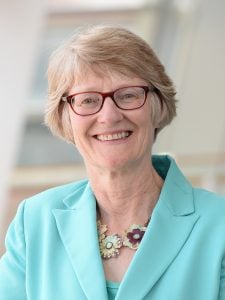
Dr. Sarah A. Rajala consistently breaks new ground for women in engineering and serves as a role model for young women. She is passionate about diversity of thought and culture, especially as it relates to the college environment. Among her many honors, she received the national Harriett B. Rigas Award honoring outstanding female faculty from the Education Society of the Institute of Electrical and Electronics Engineers (IEEE) in 2015. Dr. Rajala was also named National Engineer of the Year by the American Association of Engineering Societies in 2016.
In addition to serving as Iowa State’s Dean of Engineering since 2013, Dr. Rajala served as dean and department chair in the Bagley College of Engineering at Mississippi State University. At North Carolina State University College of Engineering, she was associate dean for research and graduate programs and associate dean for academic affairs.
Prior to moving into administrative positions, Dr. Rajala had a distinguished career as a professor and center director. She conducted research on the analysis and process of images and image sequences and on engineering educational assessment. She has authored and co-authored more than 100 refereed papers, and made contributions to 13 books. She is a fellow of ASEE, IEEE, and the American Association for the Advancement of Science (AAAS).
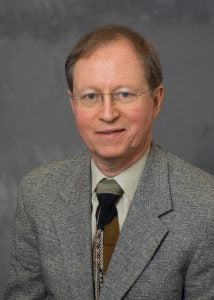
Dr. Karl A. Smith has over 30 years of experience working with faculty to redesign their courses and programs to enhance student learning.
Dr. Smith adapted the cooperative learning model to engineering education, and in the past 15 years has focused on high-performance teamwork through his workshops and book, Teamwork and Project Management (McGraw-Hill Education, 2014).
His workshops on cooperative learning have helped thousands of faculty build knowledge, skills, and confidence for involving their students in more active, interactive, and cooperative learning both during class time and outside of class. The effects of the workshops are significant in terms of creating a sense of belonging and membership in a community, as well as much more engaged and deep learning.
Dr. Smith is a world expert in discipline-based engineering education research. His interests include building research and innovation capabilities in engineering education; faculty and graduate student professional development; the role of cooperation in learning and design; problem formulation, modeling, and knowledge engineering; and project and knowledge management.
He is the author of eight books and hundreds of published articles on engineering education, cooperative learning and structured controversy, knowledge representation and expert systems, and teamwork.
For more information about the new Michigan Tech Academy for Engineering Education Leadership, contact the College of Engineering.
